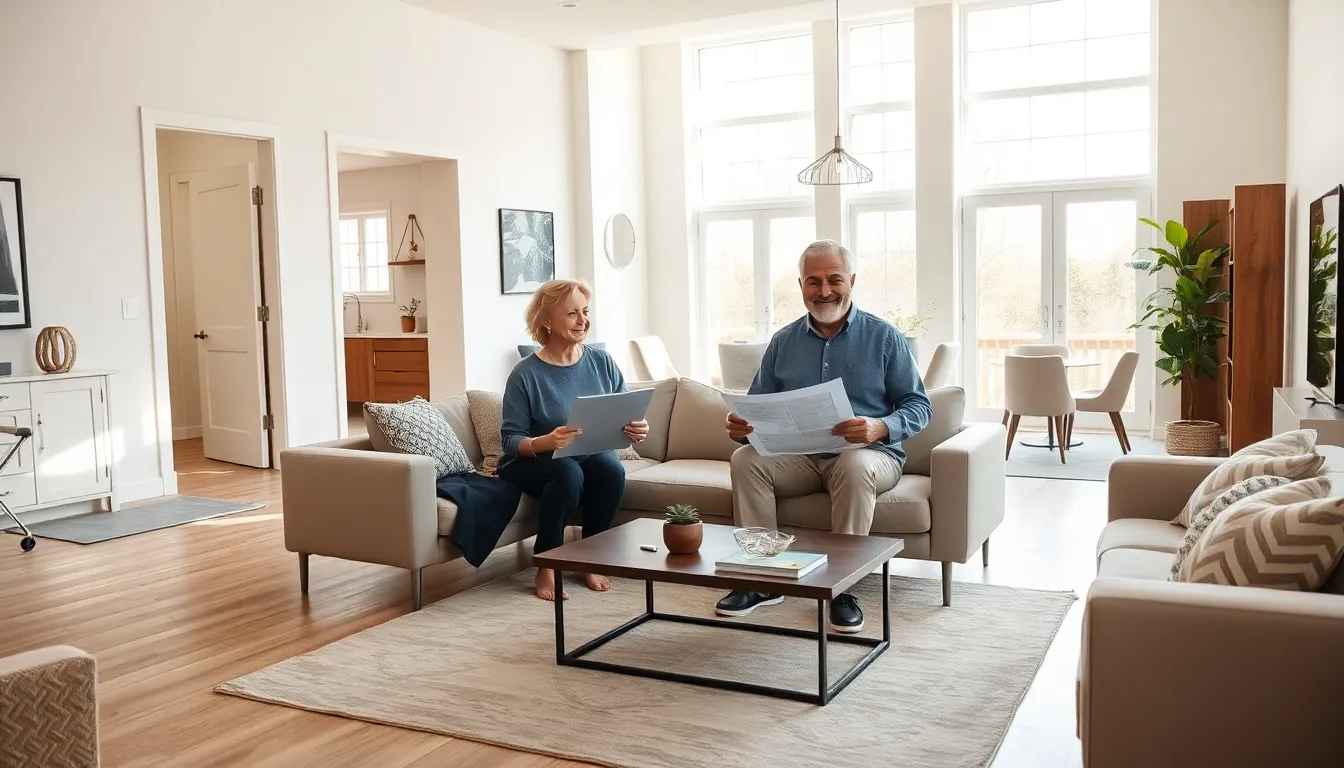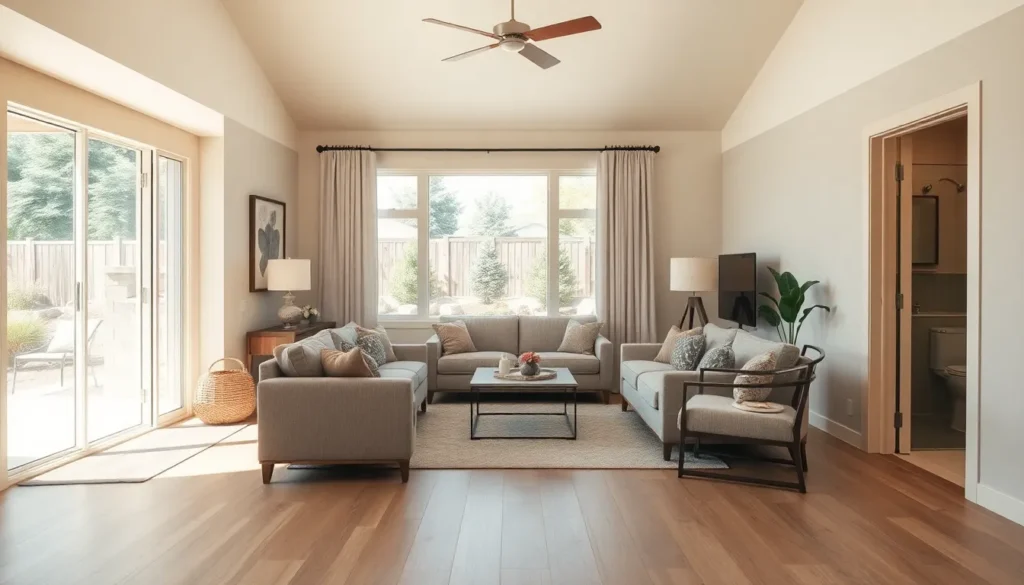Table of Contents
ToggleRetirement should be a time for relaxation, not constant home maintenance. Imagine trading in those endless chores for a cozy, accessible haven where every corner feels just right. Many people overlook the significance of remodeling their homes as they step into this new chapter. This isn’t just about aesthetics: it’s about crafting a supportive environment that meets changing needs. Whether it’s adding grab bars in the bathroom or creating a dreamy outdoor space, let’s explore how to transform your home into a retreat worthy of your golden years.
Understanding The Need For Home Remodeling During Retirement

Retirement marks a pivotal shift in lifestyle. Gone are the days bounded by a grueling nine-to-five. Now, the focus is on comfort, accessibility, and perhaps a dash of adventure. Yet, many retirees find themselves living in homes that no longer meet their needs. Aging can impose unexpected challenges, from mobility issues to simply wanting enough space for visiting grandkids. Remodeling addresses these necessary adaptations, providing solutions that perfectly align with evolving lifestyles. It’s not just about making the home visually appealing but about ensuring it serves its inhabitants as gracefully as they age.
Assessing Your Current Home For Retirement Suitability
Before you plunge into the world of remodeling, take a moment to evaluate your current home. Ask yourself, does it accommodate your changing physical needs? Are there stairs that could become treacherous? Is the layout intuitive or does it require navigating a labyrinth just to reach the kitchen?
Some critical assessments include:
- Accessibility: Are hallways and doorways wide enough for mobility aids? Consider an audit of your space with an expert to see what needs to change.
- Safety Features: Check for slip hazards in bathrooms and kitchens. Installing non-slip tiles or grab bars can prevent accidents.
- Future Proofing: Plan not just for today but for the next decade. Consider how many bedrooms you might need for family visits or a possible live-in caregiver.
Key Areas To Focus On For Home Remodeling
Focusing on critical areas can dramatically enhance your living experience. Here are the top spaces to revamp:
Designing For Accessibility And Safety
Emphasizing accessibility goes beyond convenience: it’s about independence. Opt for zero-threshold showers, lever-style handles, and appliances at waist level. These changes ensure that all aspects of daily life remain accessible, paving the way for a more independent lifestyle.
Creating Functional Living Spaces
Consider transforming those seldom-used formal dining rooms into spacious hobby areas or cozy reading nooks. Functional spaces, like a well-designed home office, can foster productivity and creativity in retirement. Each room should serve a purpose that resonates with your current interests.
Incorporating Energy Efficiency And Sustainability
Retirement is also a great time to think about the planet and savings. Solar panels and energy-efficient windows can drastically cut down on utility bills. Also, eco-friendly materials can reduce your carbon footprint while enhancing your home’s character.
Budgeting For Your Remodeling Project
Creating a budget for your remodeling project is crucial. It’s easy to get swept up in dreams of the perfect home, but financial realities must anchor those visions. Start by determining the extent of work needed. Prioritize based on safety and accessibility first, followed by aesthetic updates.
- Assess the Costs: Get estimates from at least three contractors. This will give you a clearer picture of what to expect.
- Contingency Funds: Always include a buffer, typically around 10-20% of your total budget. This extra cash can cater to unexpected issues that arise during renovation.
- Explore Financing Options: Many regions offer financing solutions for seniors. Look into local grants or loans to ease the financial burden.
Selecting The Right Contractors And Professionals
Choosing the right professionals can make or break your remodeling experience. Start by seeking recommendations from friends or family members who have undergone similar projects. A good contractor should not only possess the right qualifications and references but also understand your vision.
- Interview Multiple Candidates: Speak with several contractors to gauge their expertise and compatibility with your project.
- Get Everything in Writing: Detailed contracts can protect both parties and clarify expectations.
- Stay Involved: Maintain open communication throughout the project. Regular updates can help ensure that your vision aligns with their work.




